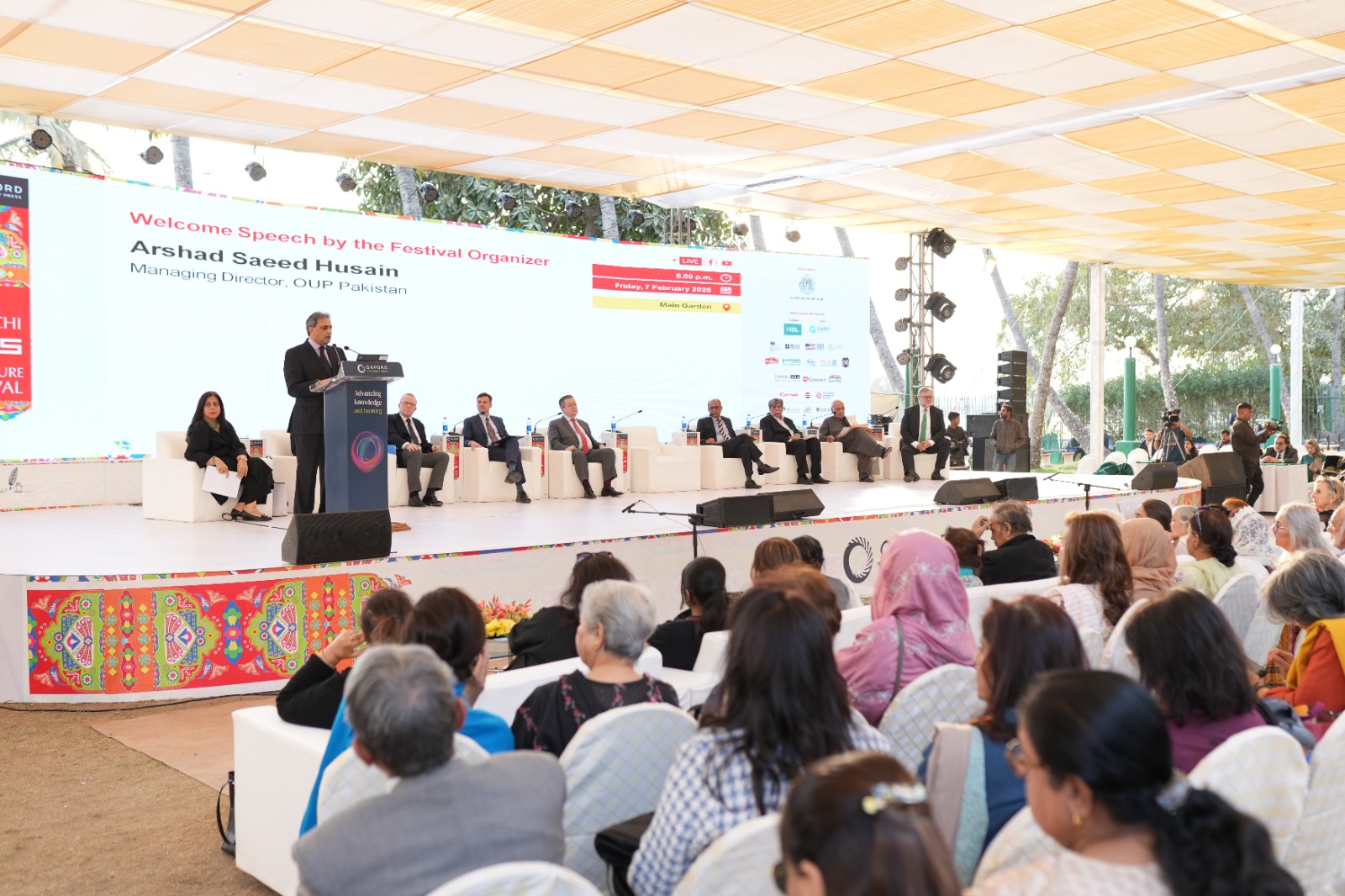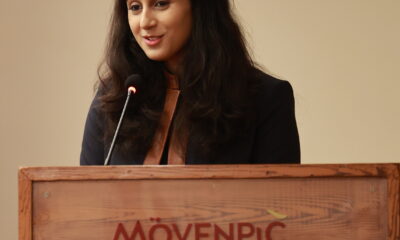Uncategorized
Karachi Literature Festival 2025 Celebrates ‘Narratives from the Soil’

The Karachi Literature Festival (KLF) 2025 opened recently with a vibrant inauguration ceremony, marking the beginning of a weekend dedicated to literary excellence, thought-provoking discussions and cultural enrichment. Organized by Oxford University Press Pakistan (OUPP), this 3-day Festival was supported by the Government of Sindh as the title sponsor. Saeed Ghani, Provincial Local Government Minister, addressed the audience, highlighting the value of culture in social development, “Sindh has one of the most iconic historic legacies in the world.” In his welcome speech, Arshad Saeed Husain, Managing Director, OUP Pakistan, said, “Oxford University Press Pakistan continues its drive for not just promoting the beautiful culture of reading and discussions, but bringing to light the power packed ‘Narratives from the Soil’ to truly distinguish the enriching legacies that geographies have to share.”
Bringing together renowned writers, scholars and literary enthusiasts from across Pakistan and beyond, KLF 2025 reaffirms its status as a premier event in the country’s cultural and intellectual landscape. Distinguished guests and consul generals shared their remarks, emphasizing the significance of literary initiatives. The keynote speech, delivered by F.S. Aijazuddin and Asghar Nadeem Syed, set the tone for the Festival, celebrating the power of literature in shaping societies.
Asghar Nadeem Syed, Playwright, Writer & Poet stated, “A story is only complete when it fulfills a certain structural compliance, however, when we hear tales, they can carry messages that are complete in themselves. So excited to be here for the three days of tales evolving.”
Keynotes were followed by the award distribution powered by Getz Pharma for; The Monsoon War by Bina Shah, which was awarded the English Fiction Prize Award; while شارق سعید کوہِ ملال (Koh Malaal by Saeed Shariq), won the Urdu Poetry Award; Urdu Prose Award went to سات جنم ، ناول ، شفقت نغمی (Saat Janam: Novel by Shafqat Naghmi) and سندھو ناولٹ جیم عباسی (Sindhu Novelet by Jeem Abbasi).
The inaugural ceremony concluded with a performance by the Khwab Dance Company. Brilliant conversations flowed in the subsequent well-curated sessions, taking a deep dive into economy, fiction, and architecture; Muhammad Azfar Ahsan led a PowerTalk on Pakistan’s economy and business climate, with prominent industry leaders and stakeholders.
16th KLF 2025 Concludes With A Call For Empowering Narratives From The Soil
The Karachi Literature Festival (KLF)’s second day had vibrant talks and music presentation by Suhel Rais Khan son of famous sitar nawaz Rais Khan, who is visiting from India. It was moderated by Malahat Awan who earlier discussed Tehzeeb’s function as an NGO.
It concluded with a shout out for upholding and endorsing the ‘Narratives from the Soil’ as voices of people across the landscape. Urban issues took center stage in ‘Urban Dialogue: The Karachi Katchehri,’ had Murtaza Wahab, Mansoor Raza, and Bilal Hassan, addressing the challenges of Karachi’s governance and infrastructural issues.
Insightful discussions on pressing national and global matters continued to engage the audience. The literary discourse acknowledging the giants of Urdu literature today, ‘Urdu ki Taza Bastiaan’ featured celebrated poets and authors Iftikhar Arif, Harris Khalique, and Ashfaq Hussain, moderated by Zarminae Ansari.
The Youth Pavilion featured interactive and entertaining sessions, including Theatre Fun and Games with Atif Badar, Mind Twisters: The Thinking Zone with Amna Ghulam Hussain, Music and Dance with Atif Badar, and Story Time by Aunty Tashi. Classic children’s songs were revived in Geeton ki Mehfil: Sohail Rana’s Famous Songs by Atif Badar who performed well in all the programmes.
KLF’s final day also celebrated the launch of 14 books, including poetry books, the closing ceremony featured notable speakers including former Senator Khushbakht Shujaat and journalist Mishal Husain. The day’s finale was the qawwali performance by the maestros Ustad Farid Ayaz and Ustad Abu Muhammad.


